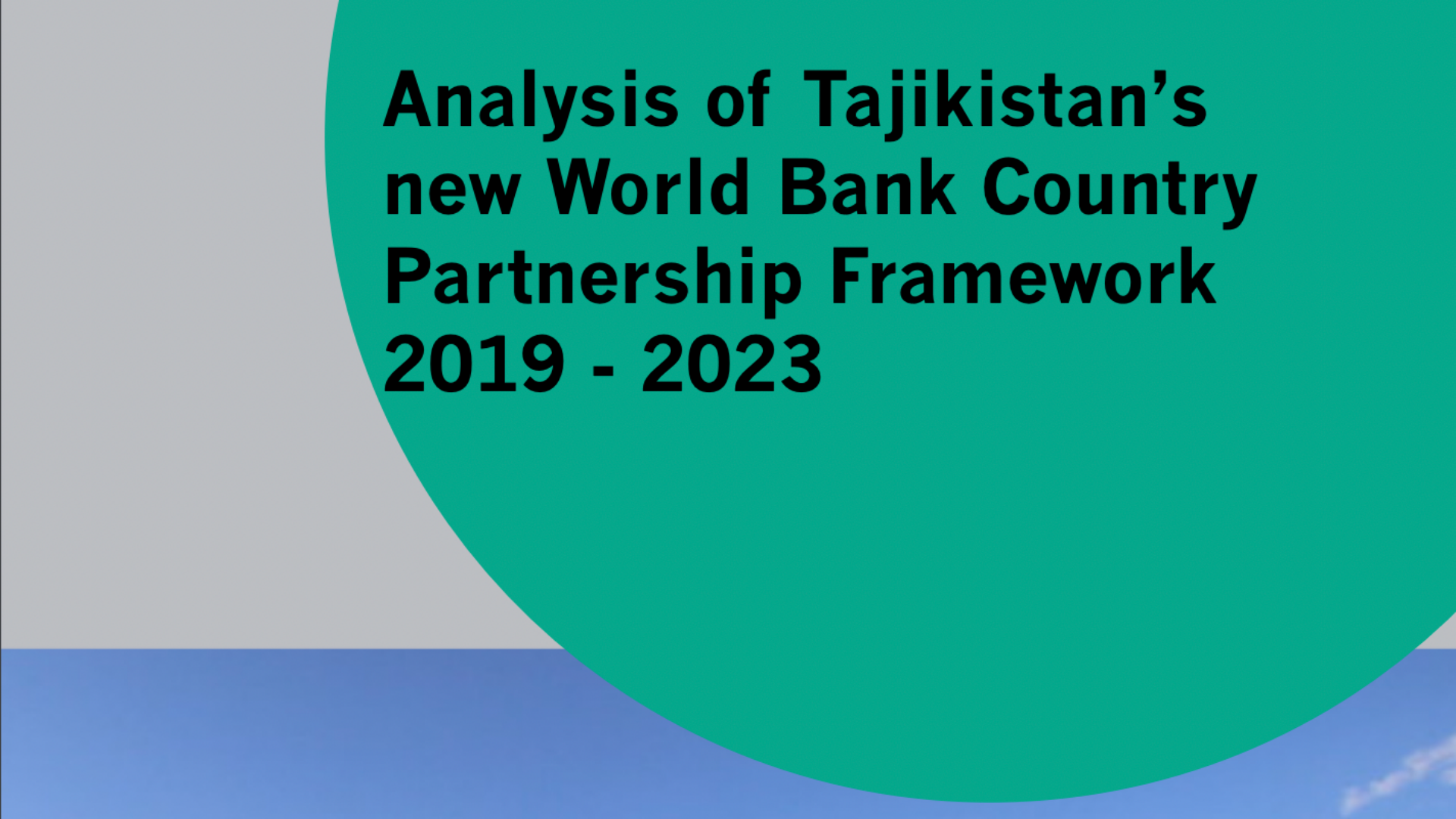- 10.10.2019
New analysis published by the Bank Information Center Europe (BIC Europe) in collaboration with seven Tajik civil society organisations reveals that the World Bank’s new country strategy for Tajikistan in Central Asia fails to incorporate key civil society priorities.
The World Bank’s new strategy for Tajikistan, the Country Partnership Framework (CPF) for 2019-2023, was released in May 2019. In preparation for the CPF, the World Bank held online and face to face consultations with stakeholders, including civil society representatives. But many civil society organisations (CSOs), especially human rights defenders and rural CSOs, were not aware of the consultations and had no information about the schedule and content. Moreover, the draft CPF was never shared, meaning that there was no opportunity to engage constructively on the proposed content.
To help civil society engage BIC Europe, with support from the Open Society Foundation, organised a workshop in March this year and worked with Tajik civil society to identify key priorities for the World Bank’s new CPF, which was sent to the Bank the same month.
Despite this, BIC Europe’s analysis of the CPF shows that the majority of civil society recommendations were not included. For example, despite that climate change was identified as a key priority by civil society, and the Bank’s own strategic focus on climate issues, the new investment portfolio has only two climate related projects in the pipeline. Moreover, while the CPF emphasises the importance of support for health and education, these sectors represent no more than 7% of the current portfolio and will only see a small increase in the coming years. Some issue areas, such as the specific needs of disabled people, are not included at all.
Instead, the new portfolio continues to prioritise the energy sector, with 26% of the overall value. Investments in the water and agriculture sectors have increased slightly. There is also new big focus on the transport sector, representing 28% of the value of the pipeline projects.
While gender issues receive some attention, there are few indicators to measure its progress, and there is no mention of Sexual Orientation and Gender Identity (SOGI) issues, despite that the World Bank has committed to improve the inclusion of SOGI in all its work. It is also disappointing that the World Bank at a time of closing of civil society space all over the world continues to steer away from critical interventions to secure human rights, such as freedom of speech.
See the full text of the analysis in English and in Russian.

